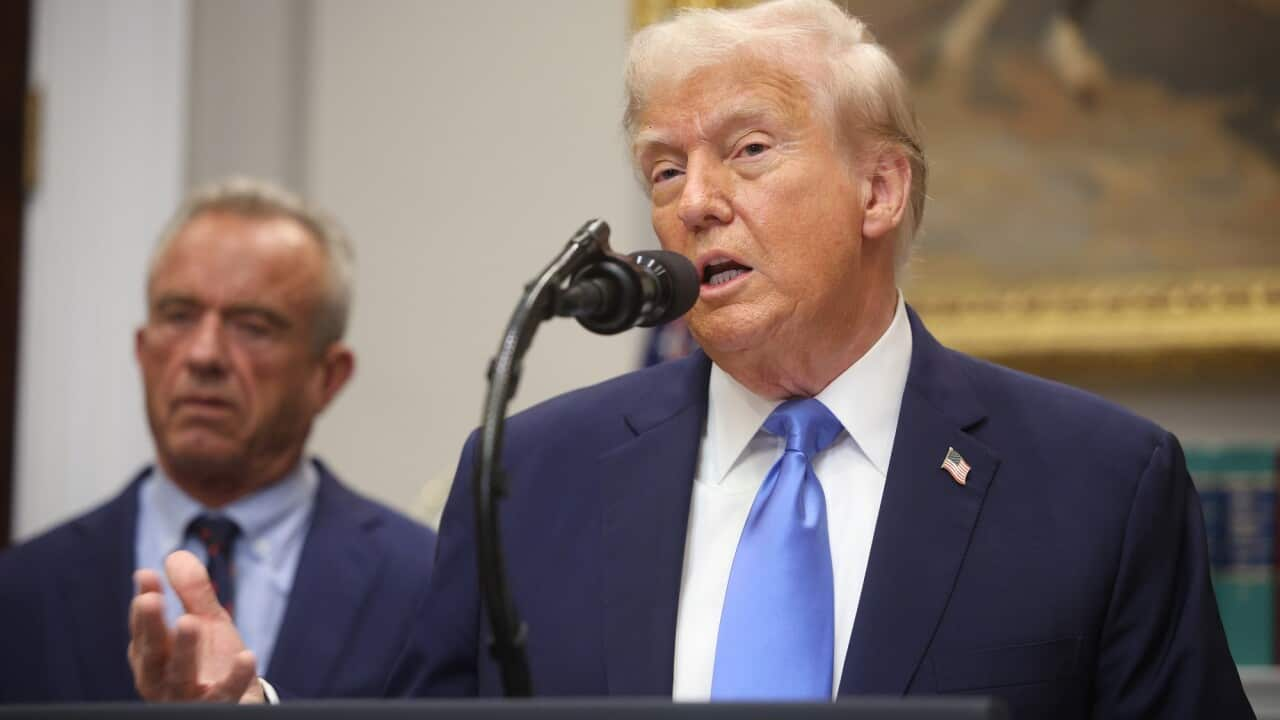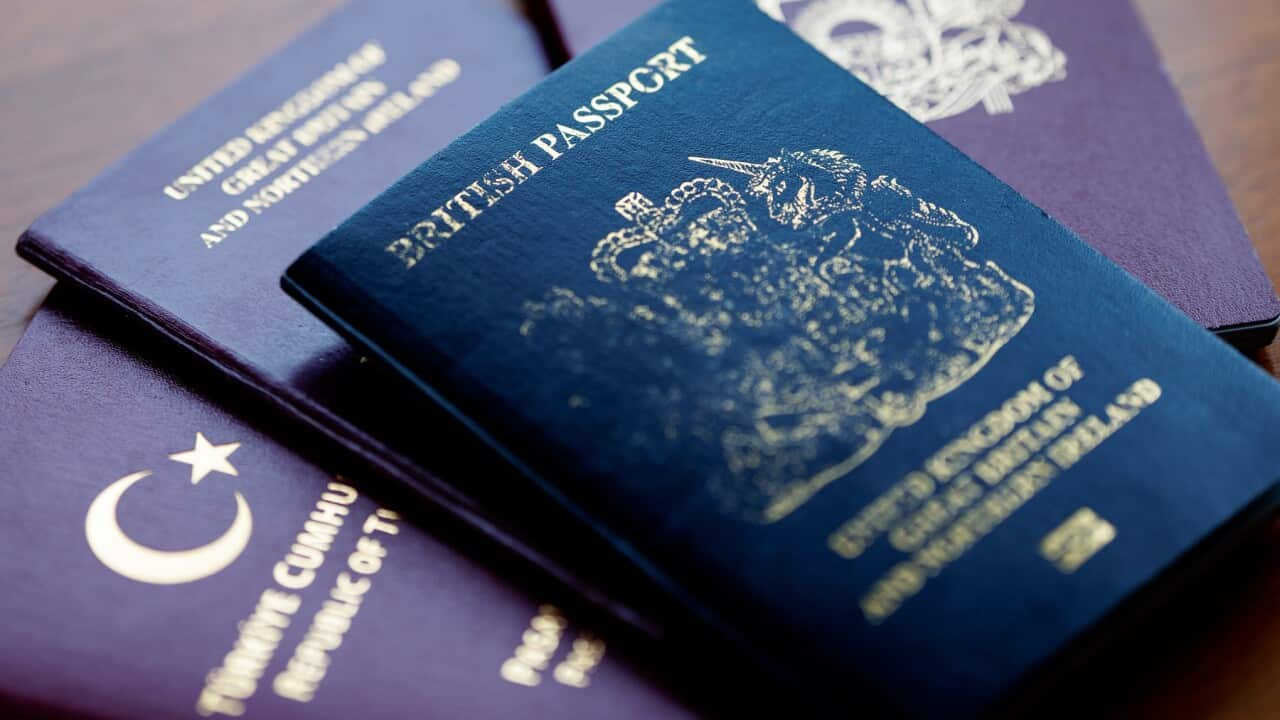Listen to Australian and world news, and follow trending topics with SBS News Podcasts.
TRANSCRIPT
In the White House, accompanied by his Health Secretary Robert F Kennedy Junior and other officials, Donald Trump made a leap into uncharted medical territory.
"I want to say it like it is. Don't take Tylenol. Don't take it. If you just can't, I mean, fight like hell not to take it. There may be a point where you have to and that you'll have to work out with yourself. So don't take Tylenol."
Mainstream medical groups have responded strongly and quickly, saying the new recommendations are based on unsubstantiated and inconclusive research.
The drug, used to treat pain and fever, is known as paracetamol in Australia and many other parts of the world.
In the United States - it is known as acetaminophen and is marketed as tylenol.
Despite the lack of evidence, the US Food and Drug Administration (FDA) has moved to change paracetamol product labels and issued a letter to physicians to say the decision belongs with parents.
Researchers who've spent decades investigating potential causes of autism say the existing data doesn't support the Trump administration's claims.
Autism expert and researcher at the University of Texas Dr Audrey Brumback says medicine is more individualised than Mr Trump is suggesting.
"I would say we have strong evidence that acetaminophen is not causing autism. It's certainly not the cause of autism. And so to make that sort of statement that nobody should take Tylenol, takes away the individualised nature of how we practice medicine and how these medicines are prescribed for families, for the people they are prescribed for both during pregnancy and for children."
Australia's Therapeutic Goods Administration has also commented, re-confirming that paracetamol is safe for use in pregnancy.
The Australian Medical Association (AMA) was also quick to dismiss Donald Trump's claims, reassuring Australian women of the safety of the drug, and that fever can cause more issues than paracetamol during a pregnancy.
Dr Danielle McMullen is the AMA President.
"What we can confidently say is that there is not data showing that paracetamol causes autism and that women should feel confident using paracetamol to manage pain or fever during pregnancy."
It's not the first time Donald Trump has offered unusual medical advice.
In 2020, during the COVID pandemic he had this to say:
"So, supposing we hit the body with a tremendous, whether it's ultraviolet or just very powerful light, and I think you said that has not been checked but you're going to test it. And then I said, supposing you brought the light inside the body, which you can do either through the skin or in some other way."
With the well-known vaccine sceptic Robert F Kennedy Junior by his side, Donald Trump also announced millions of dollars in new funding for autism research, including a long-debunked theory that puts the blame on vaccines.
Dr Hannah Kirk is a Senior Lecturer in Developmental Psychology at Monash University in Melbourne.
She says there are various reasons why rates of autism have increased in recent years.
"We know that autism is a neurodevelopmental condition with no single known cause. I can't speculate on the reasons for their interest, but we do know that the rates of autism have increased and there is general consensus that the reason for that is broader definition in our diagnostic criteria of autism as well as broader public awareness."
The US Food and Drug Administration is also taking the first steps to try to approve a decades-old generic drug for a new group of patients, including some who may have autism.
The agency said it will seek approval of leucovorin for patients believed to have low levels of folate, one form of vitamin B, in the brain.
That may include some people with autism.
The agency’s move is based on a review of small studies performed between 2009 and 2024.
Professor Kirk says there is not enough evidence to support claims that leucovorin is a treatment for autism.
"We know that folate is really important for the development of the central nervous system, and some studies including individuals with autism have shown that there's difficulty in folate metabolism in some individuals with autism. So in theory, this approach could be beneficial, but there's simply just not enough evidence at this point to advocate for it being used as a treatment or a therapy for individuals with autism."
Health Minister Mark Butler says his department is looking closely at health announcements from the US, particularly if it comes through the Food and Drug Administration.
In the meantime he has urged any pregnant women who are concerned about this report to seek medical advice.













